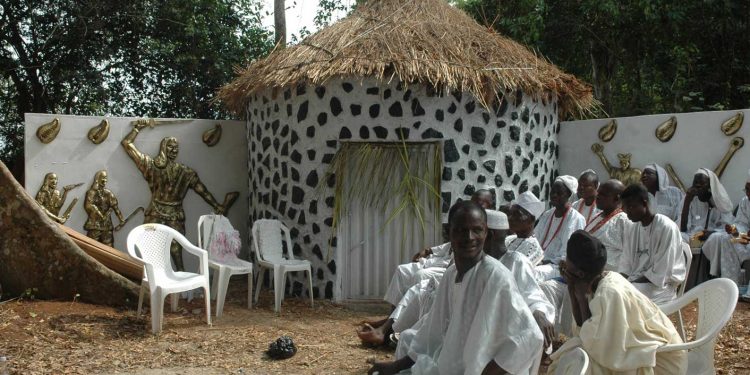By: Mariam Amodemaja
The Lisabi festival commemorates the celebration of the Egba hero called Lisabi.
Lisabi is known as a great warrior who fought assiduously for the peaceful settlement of the Egba people during the intertribal wars around 1930.
History has revealed that Lisabi, the great Egba hero, did not die but intentionally vanished into the earth in a forest between Maroko and Abatan villages in Obafemi Owode Local Government Area; the place is now known as Lisabi forest.
The forest is bounded in the west of the Ogun River and in the south of the Tegbelu stream.
Lisabi festival is an annual event held in the month of March amidst pomp and pageantry. The festival attracts visitors and tourists from far and near.
Lisabi Festival is an annual event held in March to commemorate the legendary Lisabi Agbongbo Akala for his heroic exploits in securing freedom for the Egbas from the Oloyo.
According to history, Lisabi Agbongbo Akala, a reputable and successful farmer, conspired how to liberate his people (the Egbas) from slavery and oppression.
Against all odds and with a small army, Lisabi led the Egbas to victory against the large army of the Oloyo.
In celebrating this important Egba history, an annual march to the Lisabi forest (where Lisabi was believed to have vanished) has become a major event during the Lisabi Festival.
The Annual Lisabi Festival is to showcase and foster the virtues and values held by Lisabi in order to develop the Egbaland and Ogun State further.
The festival brings people from the entire Egbaland together in a spectacular display of pomp and pageantry
said: “Lisabi did not die. He did not slow down. They took him to a pit there (in Igbo Lisabi) and threw him down. He was a giant of a man.
Lisabi, a native of Itoku in the ancient town of Abeokuta, lived in Igbein area of the city, and because of his prowess in warfare, the people of Igbein, to date, have the exclusive right to the war title of Balogun of Egbaland.
According to history, when the other Egba leaders had resigned to fate under the unbearable servitude they were consigned to by the Oloyo, Lisabi was preoccupied with the thought of how his land of birth would be freed from the shackles of slavery.
Towards uniting the people for an onslaught against Oloyo’s formidable force which was an amalgam of many towns and villages which were similarly consigned to servitude, Lisabi reportedly formed a cooperative society that had able-bodied men who were farmers as members.
Abeokuta’s history points to the fact that Lisabi proved to be an energetic leader as he worked harder than others whenever they went to work on a member’s farm, so much that every member promised to do his best when it was time to work on Lisabi’s farm.
When his (Lisabi’s) time came, instead of asking members to work on his farm, he declared war on Oyo.
His cooperative society members were amazed and afraid but accepted to go to war because they did not want to disappoint him by reneging on their promises.
With supreme war tactics, Lisabi’s army, whose numerical strength was far less than that of the Oloyo, won the battle, consequently obtaining freedom for the Egbas.
In celebrating this important part of the Egba history, the annual march to the Lisabi forest becomes a major event.
However, the event will be celebrated traditionally. Egba sons and daughters will visit the Lisabi Sacred Forest in Oba village, Obafemi/Owode Local Government, Ogun State.
History of the Egba has it that the Lisabi forest houses the remains of the legendary man, Lisabi.
935 total views, 1 views today





